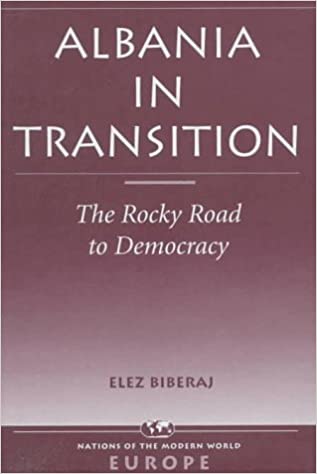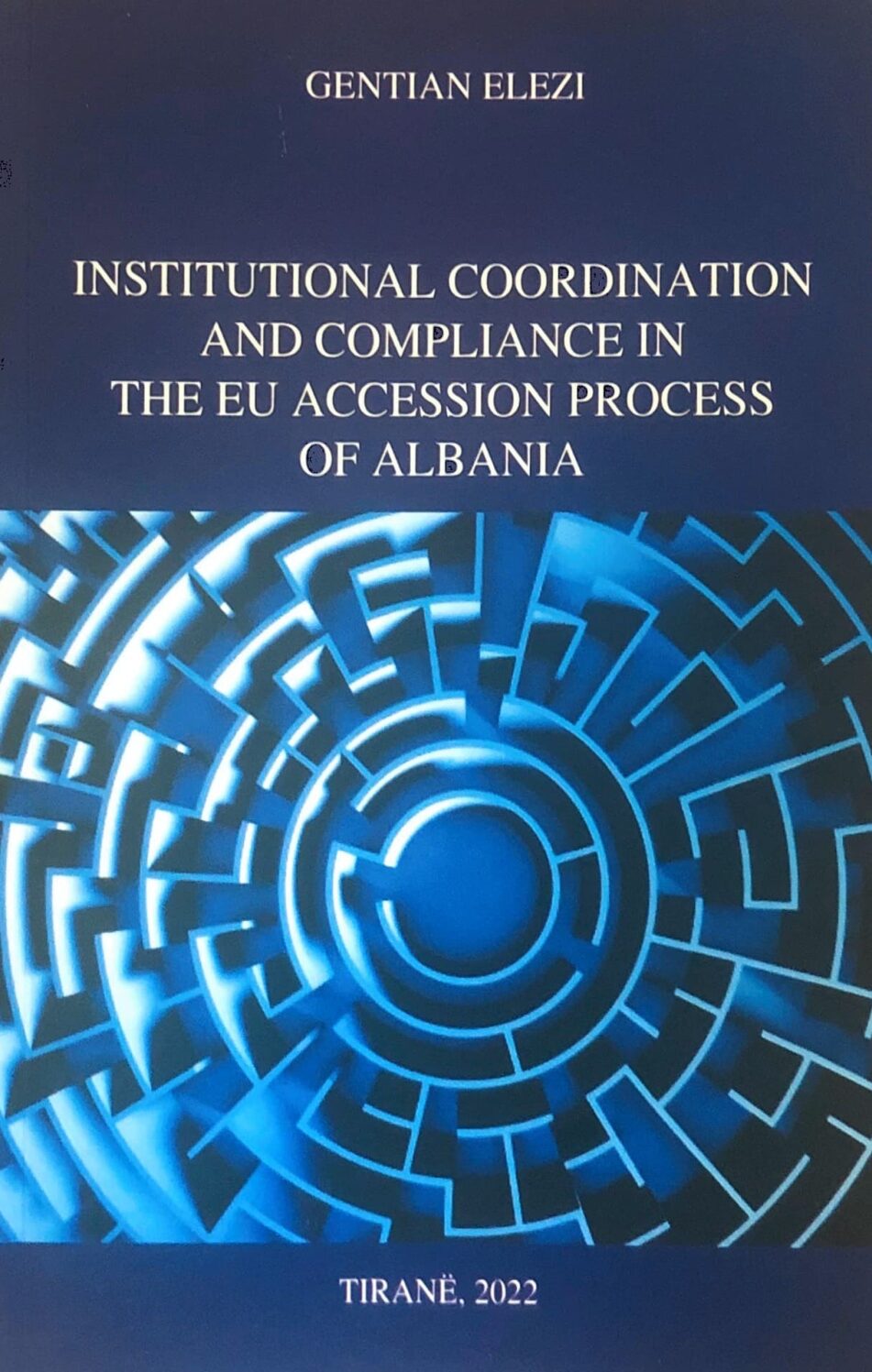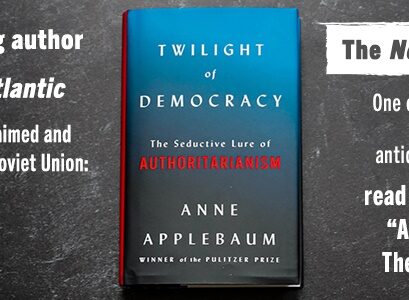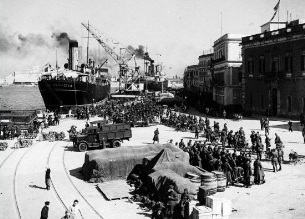By Albert Rakipi
In October, 2010, I suggested to Elez Biberaj that he republish his book Albania in Transition. Coincidentally, at that time he and other well-known scholars of Albanian matters, had been invited to the conference “20 years after the fall of communism: Reflections on the state and democracy,” jointly organized by the Institute for International Studies and Friedrich Ebert Foundation which had the purpose of evaluating the progress of Albania’s post-communist transition– the theme of Biberaj’s book. Biberaj eagerly welcomed the idea of republication and even proposed writing a new chapter to assess the developments of the last fifteen years.
In 1998, at the time of Westview Press’ initial publication of his book on post-communist transition and Albanian politics, the Albanian economy and society, without a doubt, continued to function—if it can even be called “function”—more in a chaotic manner, rather than according to a clear political system.
While, I believe that chaos is an inevitable fragment of all transitions, including transitions from communist dictatorships to liberal, democratic regimes; in 1998, Albania experienced one of the most dangerous crossroads of its entire existence as an independent state. At the time, Albania was still in search of a way out of one of the most serious crises in its entire modern history—the crisis of 1997—that emerged after the fall of the pyramid schemes and led to the failure of the state.
A number of important reforms undertaken after the crisis of that year, essentially were the same reforms which had been interrupted by the anarchy and fall of the state; and were reasoned, at the time, to be typical of a transition period.

Theoretical debate over the post-communist transition has been plenty, including contradiction and dilemmas over a number of cases, as well as the critical question: when, exactly, can one say that the transition, as an intermediary phase of the state’s political and economic transformation, is over?
In a unique way, these theoretical dilemmas regarding when post-communist transition can be considered complete, began to appear in the mid 1990s. Complete transitions were hinted at in Central Europe, which had enjoyed liberal traditions and states with an older history. For Albania, on the other hand, considering the chaos with which Albania was faced in 1997 and 1998, there was no doubt that it remained in a state of transition, with little, and occasionally threatened, stability.
From this perspective, Biberaj’s idea to include Albania’s political transition (rather than simply political Albania) post-1997 was natural and perhaps even necessary.
In the international conference on post-communism which took place in Tirana, there was no lack of debate over the dilemma of whether or not, after two decades, Albania’s post-communist transition can be definitively called complete.
If, even in 2010, twenty years since the fall of communism– when Albania is a member of NATO and is seeking EU membership– the issue of an uncompleted transition still exists, then it is only natural to consider that the story of transition published in 1998 may not be finished.
On the other hand, it is critical that we agree on a definition of post-communist transition. Michael Mandelbaum suggests that post-communism is a term which refers more to the past than the future. One can think that the transition in Albania is not yet finished; but what has happened in this place during the last decade has nothing to do with the past or transition. To this end, Michael Weichert states that the term transition, in fact, is not helpful in assessing the presented dilemma. Instead, the term simply marks the beginning of Albania’s endeavors in 1990. Yet, can transition assist in showing us where, or at what point, Albania wants to arrive: a functioning state and democratic society?
If we suppose that transition is complete when a place has arrived at the metaphorical “getting to Denmark,” then I believe that Albania’s transition will not be ending anytime soon. This would similarly be true of many places with delayed state traditions and minimal democratic experiences. Any dilemmas with a liberal functioning democracy and state in Albania, as well as places similar to Albania, have to do with generational issues, not post-communist transition.
The contradictory advancement of Albania– and not only Albania– with large steps forward and accompanied by frightful steps back, can and should be understood and explained outside the transitional framework.
If we rely on this perspective, and consider that the magic, breath and also substance of Albania’s (and other places as well) post-communist transition, happened in that intermediary time, when the old regime and its suppressive system crumbled, when the centralized economy came to an end, and a new political system emerged; then Elez Biberaj’s 1998 book on the Albanian transition, and most certainly this publication inclusive of the years up until 2010, is a book which is absolutely critical to understanding, explaining, and analyzing Albania’s historical political transition from a communist dictatorship to a liberal democratic system.
The first element which makes Biberaj’s book so important is that: Albania in Transition is a story of post-communist political transition. It’s the best political story that has been written until now about one of the three most important periods– if not the most important– of the one hundred years of Albania’s modern history; a history which began with Albania’s historical establishment and consolidation, was followed by the triumph of the communist regime at the end of World War II, and then culminated in the collapse of the communist dictatorship, which brought the current regime in the early 1990s.
The second important aspect of Albania in Transition lies in the fact that the author has established this story of Albania’s political transition in a full historical and geopolitical context. The long, iron-fisted isolation of the communist period interrupted Albania’s much-needed cultural and scientific exchange with the rest of the world. As such, western communications and publications pertaining to Albania were either non-existant or were very few; and, by 1990, Albania was a place that practically did not exist. Such a situation made it necessary to develop a new story in a historical context. This approach, apart from facilitating an understanding of Albania’s historical transition, is valuable and beneficial in itself because it provides a dynamic illustration filled with the contradictions of the Albanian history, state, people, culture, and the unique way in which Albanian politics under communism consisted also of international relations throughout the duration of the regime.
The first non-communist opposition in Albania strongly supported the state’s political and economic transition, as well as foreign affairs and international relations. The break from the old regime could not begin, or be as successful, without the emergence from isolation and reestablishment of relations with the Western world. However, before analyzing, for example, the role foreign affairs and international relations played in Albania’s transition, Biberaj presents a historical context of these relations, which, in addition to providing an overall understanding of the changes, is beneficial in itself.
At the same time, Albania’s historical political transition would not be complete without a geopolitical context in which Biberaj explains the change of the regime in Albania– a state so small that as Robin Alison Remginton noted, it is only slightly larger than Maryland, but has a critical role in the future development of the Balkan region.
As the Albanian transition was taking place, the Balkans was heading unprepared toward one of its darkest periods, marked by bloody wars reminiscent of World War II– appearing evermore like a theatre of extreme violence and a field of collision/collaboration with the Great Powers of the time. Apart from the story of Albania’s transition, Biberaj’s book is a must-read for each international relations student who is interested in the modern-day relations of the Balkan region and the powers beyond.
Thirdly, it can honestly be said that Elez Biberaj’s book on Albania’s transition has, in fact, helped the transition itself. The book has served not only to clarify the Albanian transition, but also to foster international awareness of a small place like Albania, as well as the entire region– contributing to a sparking of Western interest for peace and stability in the Balkans.
Albania in Transition is a story of political transition, but it is not the only or the final one. This book was written while the transition was happening itself. Such a situation does not allow for reflection which comes only with the passing of time, and is sometimes necessary to having a neutral view of circumstances and actors.
Last but not least, I would like to underline two facts:
First, this story of Albania’s political transition is written by a person who has made a significant contribution to the transition. Elez Biberaj’s voice on the Albanian program of Voice of America– which shook the hearts and minds of Albanians and prepared them for a great change– will remain permanently in the memories of Albanian people. Furthermore, apart from other factors which led to the ousting of the dictator in Albania, Remzi Lani suggests that the “Biberaj Factor,” as exhibited by his efforts on Voice of America, should be considered as an invaluable contribution as well.
Second fact: Elez Biberaj with this book, as well as previous books, continues to remain one of the most successful Albanian political scientists and historians; and more importantly continues the remarkable and unparalleled tradition of Albanians developing and excelling in the United States of America.










